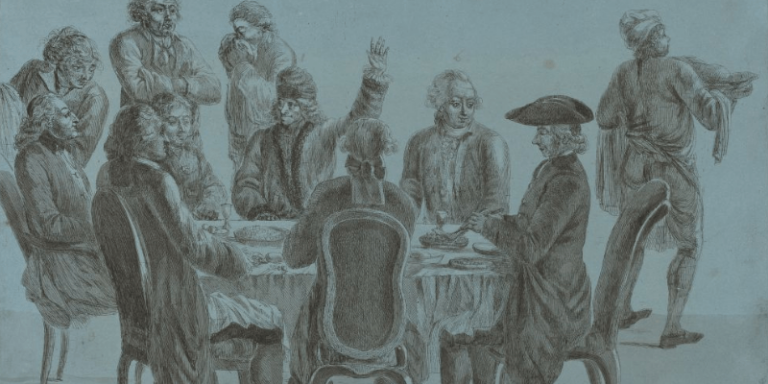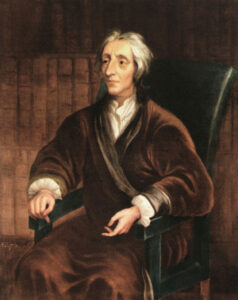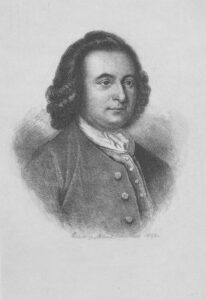The Age of Enlightenment: What Would America Be Without It?
We give the Founding Fathers a lot of credit – but they were inspired by others in the Age of Reason.
By: Andrew Moran | April 9, 2021 | 692 Words

The Philosophers’ Meal, after 1772. Artist Unknown. (Photo by Heritage Art/Heritage Images via Getty Images)
The Western world became a beacon of justice, freedom, and prosperity because of the ideas in the Age of Enlightenment, also known as the Age of Reason. This was an intellectual movement in the 17th and 18th centuries that eventually led to the American Revolution.
The Age of Enlightenment: A Primer
In 1637, French philosopher Rene Descartes wrote “I think, therefore I am” in his book Discourse on Method. The idea is that his existence cannot be doubted since he is the individual doubting in the first place.
This simple concept – one that we indeed take for granted today – laid the groundwork for Enlightenment as it sparked the premise that everyone exists in this world because they possess the ability to think. With this truth, people understood that they have independent thought, they should not believe everything they are told, and they can question everything.
Once the Age of Reason progressed, the key objectives behind this movement were clear: the pursuit of happiness and the advancement of reason. But how could these goals be reached? The thinkers of the time, from Francois Voltaire to Immanuel Kant to John Locke, put forward central and rational tenets to achieving these aims: individual liberty, the separation of church and state, religious tolerance, progress, and constitutional government.

John Locke (Photo by: Universal History Archive/Universal Images Group via Getty Images)
A Nation Is Born
John Locke is perhaps the most critical person in United States history. The 17th century English philosopher redesigned what government is, writing that it is responsible for protecting and defending the people’s natural rights: life, liberty, and property.
The Founding Fathers understood the power behind Enlightenment. Benjamin Franklin, Thomas Jefferson, Thomas Paine, and James Madison – these men engaged in what was later described as “American Enlightenment.” The attributes in the Age of Reason – from Early Enlightenment to Late Enlightenment – became apparent in the Virginia Declaration of Rights that had been authored by George Mason and adopted by the Virginia Convention of Delegates:
“That all men are by nature equally free and independent, and have certain inherent rights … namely, the enjoyment of life and liberty, with the means of acquiring and possessing property, and pursuing and obtaining happiness and safety.”
The principles later became a part of America’s identity, with the Declaration of Independence stating:
“We hold these Truths to be self-evident, that all Men are created equal, that they are endowed by their Creator with certain unalienable Rights, that among these are Life, Liberty and the pursuit of Happiness.”

George Mason (Photo by Smith Collection/Gado/Getty Images)
A Few Good Men
Who were the leading influential figures of the American Enlightenment? Here are a few good men:
- Thomas Paine: An English writer and philosopher who is best known for his 1776 pamphlet Common Sense, material that advocated American independence.
- George Mason: A member of the Virginia House of Burgesses representing Fairfax County who has been considered the father of the Bill of Rights.
- Benjamin Franklin: A polymath statesman and Founding Father.
- Thomas Jefferson: The third U.S. president was the author of the Declaration of Independence and made notable contributions – through correspondence – to the Constitution.
- James Wilson: A legal theorist who acted as an Associate Justice of the U.S. Supreme Court and notable contributor in drafting the Constitution.
- Samuel Johnson: While not as famous as other Founding Fathers, the clergyman has been described as “a towering intellect of colonial America,” most notably for the first philosophy textbook published in the nation: The Foundation of American Philosophy.
Is Enlightenment Passé?
Despite the age of reason being a critical force for much of the advancement throughout the modern world, the globe has moved onto a path that abandons the fundamentals of Enlightenment. The left has embraced the same aspects of pre-enlightenment, but instead of the church ruling everything, it is the government that is the almighty power. From ignoring elementary science to censoring speech, the pre-enlightenment era is making a comeback. But can the ideals of Enlightenment – the core of the American spirit – overcome these obsolete ideas?
















